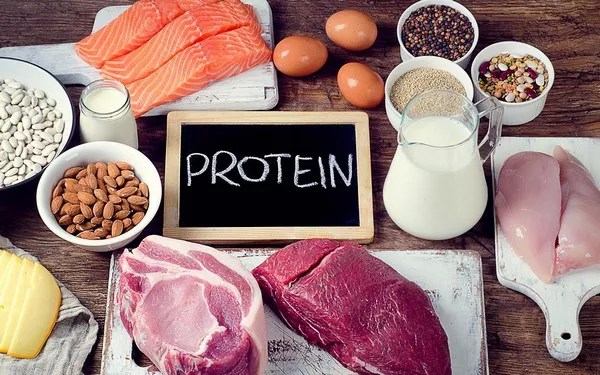Whey protein has gained immense popularity in the health and fitness community as a supplement that aids in fat loss. Derived from milk during the cheese-making process, whey protein is a complete protein that contains all essential amino acids necessary for optimal health. Beyond its muscle-building reputation, research has shown that whey protein offers various benefits in supporting weight management and fat loss. In this comprehensive article, we explore the science behind whey protein’s effectiveness in fat loss, its impact on metabolism, appetite regulation, and muscle preservation. Understanding the mechanisms through which whey protein works can help individuals make informed decisions about incorporating it into their weight loss journey.
Whey Protein and Metabolic Boost
One of the primary ways whey protein aids in fat loss is through its ability to boost metabolism. Protein, in general, has a higher thermic effect compared to carbohydrates and fats, meaning that the body expends more energy to digest and process it. This process is known as the thermic effect of food (TEF). Among all dietary proteins, whey protein has one of the highest TEF values, estimated to be around 20-30% of its caloric content. As a result, consuming whey protein can increase energy expenditure, aiding in the burning of calories and facilitating fat loss.
Additionally, whey protein contains high levels of branched-chain amino acids (BCAAs), particularly leucine, which has been linked to promoting the synthesis of lean muscle mass. Increased muscle mass can lead to a higher basal metabolic rate (BMR), meaning that the body burns more calories at rest, contributing to long-term fat loss.
Impact on Appetite Regulation
A key challenge in weight loss efforts is managing appetite and preventing overeating. Whey protein has been found to have a positive impact on appetite regulation, which can be beneficial for those striving to lose weight. Studies have demonstrated that whey protein stimulates the release of certain hormones that promote satiety and reduce hunger signals. One such hormone is cholecystokinin (CCK), which signals fullness to the brain, leading to a reduced desire to eat.
Moreover, whey protein consumption has been associated with lower levels of the hunger hormone ghrelin. By reducing ghrelin levels, whey protein can help control food cravings and reduce the likelihood of overeating or indulging in high-calorie snacks.
Preserving Lean Muscle Mass
During weight loss, the body may break down both fat and muscle tissue for energy. Preserving lean muscle mass is crucial as it helps maintain overall strength, supports physical performance, and keeps the metabolism active. Whey protein’s high content of essential amino acids, especially leucine, helps promote protein synthesis and inhibits muscle breakdown.
Several studies have shown that individuals consuming whey protein while on a calorie-restricted diet experienced greater fat loss and preserved more lean muscle mass compared to those on a calorie-restricted diet without whey protein supplementation. This muscle-sparing effect can lead to a more desirable body composition and a healthier metabolism during the weight loss process.
Regulating Blood Sugar Levels
Stabilizing blood sugar levels is crucial for maintaining energy levels and preventing sudden hunger cravings. Whey protein has been found to positively impact blood sugar regulation, particularly in individuals with type 2 diabetes or insulin resistance.
Whey protein may slow down the absorption of glucose into the bloodstream, leading to a gradual and steady release of energy. This can help prevent rapid spikes and drops in blood sugar levels, reducing the likelihood of cravings for sugary or high-calorie foods.
Combining Whey Protein with Exercise
The combination of whey protein supplementation with regular exercise can yield synergistic effects in promoting fat loss. Engaging in resistance training or high-intensity workouts can increase protein requirements for muscle repair and growth. Whey protein, as a fast-absorbing and readily available protein source, can be an ideal post-workout supplement to support muscle recovery and enhance exercise performance.
Furthermore, the combination of whey protein intake and exercise may lead to a phenomenon called the “afterburn effect” or excess post-exercise oxygen consumption (EPOC). Following intense exercise, the body continues to burn calories at an elevated rate to restore oxygen levels, repair muscle tissues, and replenish energy stores. Consuming whey protein post-exercise can amplify this afterburn effect, leading to additional calorie expenditure and facilitating fat loss.
Choosing the Right Whey Protein Supplement
With a wide array of whey protein supplements available in the market, it is essential to select a high-quality product that aligns with individual health goals. Consider the following factors when choosing a whey protein supplement:
1. Protein Content: Opt for whey protein powders with at least 70-80% protein content per serving.
2. Minimal Added Ingredients: Avoid whey protein supplements with excessive added sugars, artificial flavors, and unnecessary fillers.
3. Type of Whey: Whey protein isolate and whey protein concentrate are the two common types. Whey protein isolate generally has higher protein content and lower lactose content, making it suitable for lactose-intolerant individuals.
4. Source and Quality: Choose whey protein from reputable brands that prioritize sourcing high-quality ingredients and adhere to good manufacturing practices.
Conclusion
Whey protein’s impact on fat loss can be attributed to its ability to boost metabolism, regulate appetite, preserve lean muscle mass, and stabilize blood sugar levels. When combined with regular exercise, whey protein can become a powerful tool in achieving weight management goals and improving overall body composition. As with any dietary supplement, individuals should consult with a healthcare professional or registered dietitian before incorporating whey protein into their weight loss regimen, especially if they have pre-existing health conditions or food allergies. With proper usage and adherence to a balanced diet and exercise program, whey protein can become a valuable asset in the journey toward a healthier and leaner body.


